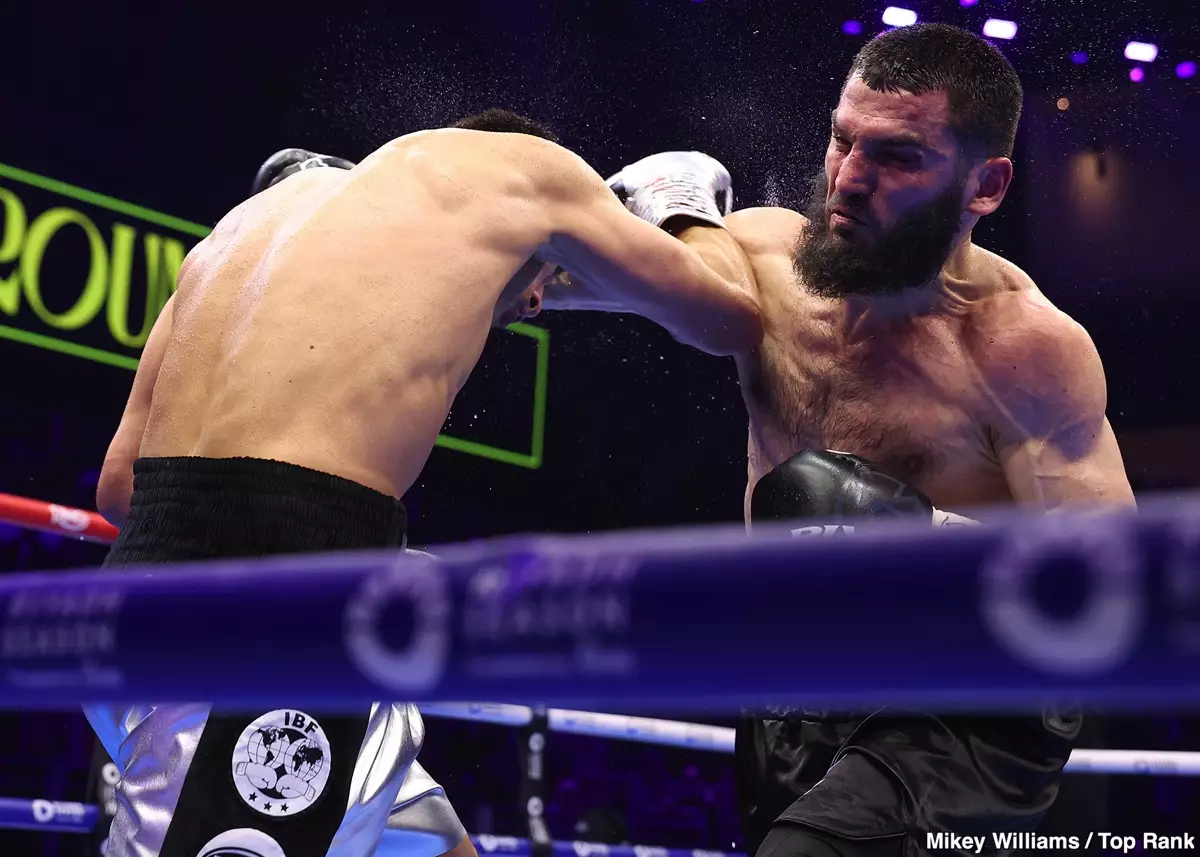In a much-anticipated rematch, Artur Beterbiev faced Dmitry Bivol in a tense showdown that culminated in a majority decision victory for Bivol in Riyadh. Beterbiev’s coach, Marc Ramsay, expressed strong sentiments regarding the fight’s scorecards, noting a significant discrepancy between his assessment and that of the judges. The bout showcased the skill and resilience of both fighters, but the question of fairness looms large over the results.
Ramsay’s evaluation suggested that Beterbiev convincingly won the early stages of the fight, specifically taking the first, third, fourth, fifth, sixth, and twelfth rounds, which he argues establishes a strong case for at least a draw—if not a victory. His claim that Beterbiev was dominant up until he began to slow down in the latter half highlights a critical element in boxing: momentum. The first half of the match saw Beterbiev executing effective strikes, which seems to have set a problematic precedent for the judges. While round one was undoubtedly in Beterbiev’s favor, the later rounds saw Bivol employing a defensive strategy that focused on clinching and movement rather than engaging in significant exchanges of blows.
The judges’ scorecards, with outcomes of 115-113 and 116-112 favoring Bivol alongside a 114-114 score, sparked debate within the boxing community. Opinions diverge sharply on whether the judges accurately captured the ebb and flow of the match. Some analysts argue that Beterbiev’s performance during those pivotal rounds warrants recognition, while others speculate that judges might have been influenced by Bivol’s ability to evade striking rather than engage in powerful bouts. The controversy begs examination of judge competency, particularly in high-stakes matches so reliant on nuanced boxing technique.
Reflecting on the fight, Ramsay warned that if Beterbiev continues to face similar judging biases, he might better direct his focus toward bouts against fighters like David Benavidez or Callum Smith. Such matchups promise an exciting clash of styles and could benefit Beterbiev by allowing him to avoid the complications arising from judging decisions that frankly seem unjust. With both Benavidez and Smith known for their aggressive approach, the entertainment value would be amplified, and importantly, Beterbiev would be in charge of his fate inside the ring.
The rematch between Beterbiev and Bivol shines a light on the ongoing challenges in boxing regarding judging standards and the impact of perception on outcomes. While Beterbiev’s coach clearly articulates a case for his fighter’s performance, the reality of the sport insists that conveying this in the ring is paramount. As Beterbiev moves forward, he must redefine his strategy, not just in terms of technique but also in anticipating how judges may perceive his fighting style compared to that of more elusive opponents like Bivol. The hopes for clarity, fairness, and successful future endeavors rest upon Beterbiev’s ability to navigate a complex landscape where perceptions can often overshadow performances.

